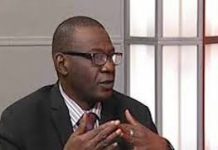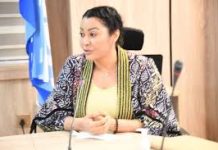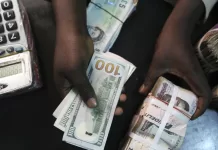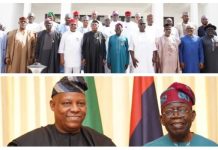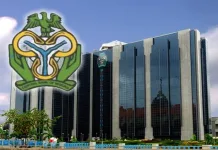Do you think Nigeria has what it takes to offset the debt it owes to international institutions and countries around the world?
You see, as much as most Nigerians want this debt situation sorted, the country’s debt-to-revenue ratio at the moment is poor.
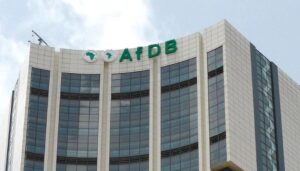
Nigeria’s debt situation has been on an astronomical rise over the last few decades.
Many Nigerians have expressed sadness over what they termed handing over a debt-ridden country to the next generation.
For them, something needs to be done fast to salvage the nation’s economy.
Now, the African Development Bank (AfDB) says the country’s debt is sustainable.
The Chief Economist and Vice President for Economic Governance & Knowledge Management at AfDB, Prof. Chika Urama, made this known.
Have You Read: Nigerians Groans As FG Approves Tariff Hike For Electricity Consumers Amidst Hardship
Urama while answering questions during a virtual pre-annual press conference revealed this.
Debt-to-revenue Ratio
The economist praised the federal government’s efforts in revenue generation while calling for further action.
He emphasised the importance of addressing the debt-to-revenue ratio to ensure fiscal stability and forward momentum.
Urama said Nigeria needs to tap into global green financing opportunities, insisting that access to green financing in Africa remains relatively low.
According to him, only a fraction of available global green bonds is being accessed by African countries.
Also, he pointed out that Nigeria and other nations with stronger infrastructure and human capital should be able to access climate financing instruments.
Nigeria’s Debt To GDP Ratio
Urama explained that “Nigeria’s debt-to-GDP ratio is still sustainable.
However, the issue with Nigeria centers around the debt-to-revenue ratio, so the FG is doing a lot to improve revenue generation.
“If Nigeria can increase revenue generation, the country will be able to rebalance the debt-to-revenue ratio and to move forward.
“Now one point I need to make is that debt is not bad. Growing debt is always a means of driving transformative growth in countries.
“And the issue is not about debt, but about the quality of the debt in terms of what terms you borrow, and how transparent they are.
“And then what do you do with the resources borrowed? Suppose it is invested in growth-enhancing infrastructure and productive infrastructure.
“In that case, you are going to be able to generate revenue to be able to repay the loans but still also grow your economy. And that is how most countries grow.”
Furthermore, he noted that the upcoming annual meetings of the AfDB would focus on how Nigeria and other African countries could tap into green financing globally.
Seek Access Green Financing
He advised Nigeria and other developed African countries to take the lead.
Urama said: “Now on the issue of green bonds, I can tell you, in general, that access to green financing and green bonds in Africa has been low compared to the other regions.
“It is below 2% of the global green bonds that are available and has been accessed by Africa.
“One fact that is there is that countries with higher growth trajectories like South Africa, Nigeria, and Kenya, are better developed.
“In terms of infrastructure and human capacity, the ministries have greater chances of accessing those climate financing instruments than others.
“But how we access climate finance in Africa and how we relate with the global financial architecture in Africa is at the center of these knowledge events that we’re going to be having.
You May Also Like: Breaking: President Tinubu Orders Payment Of ₦342m Electricity Debt
“Regarding the upcoming meetings, he added: “We are going to be having those knowledge events, be part of the discussion be part of the debate.
“Also, the dissemination of the knowledge that will come out because the current structure as it is laid out, does not allow many African countries to access them.”

